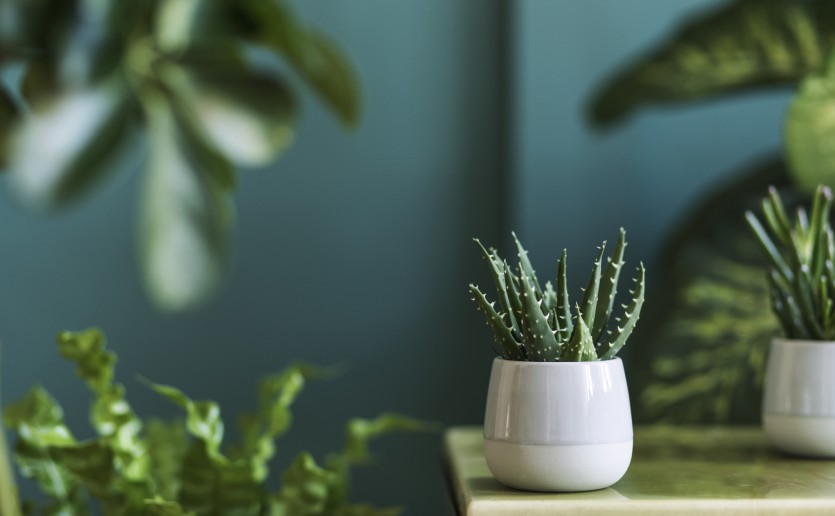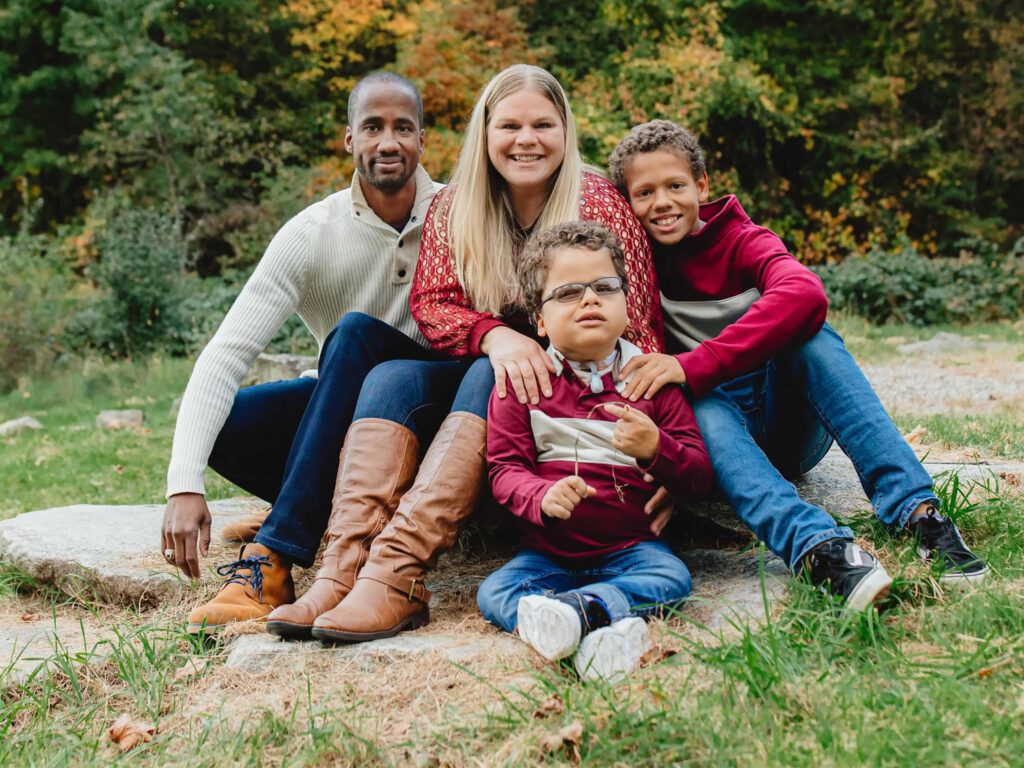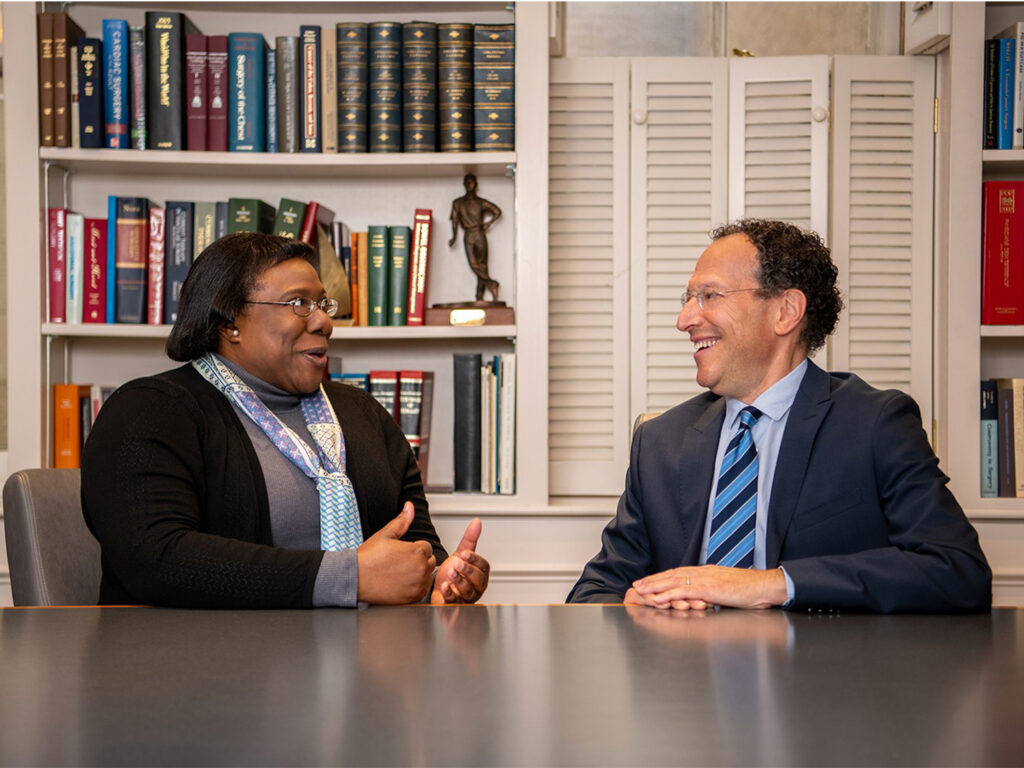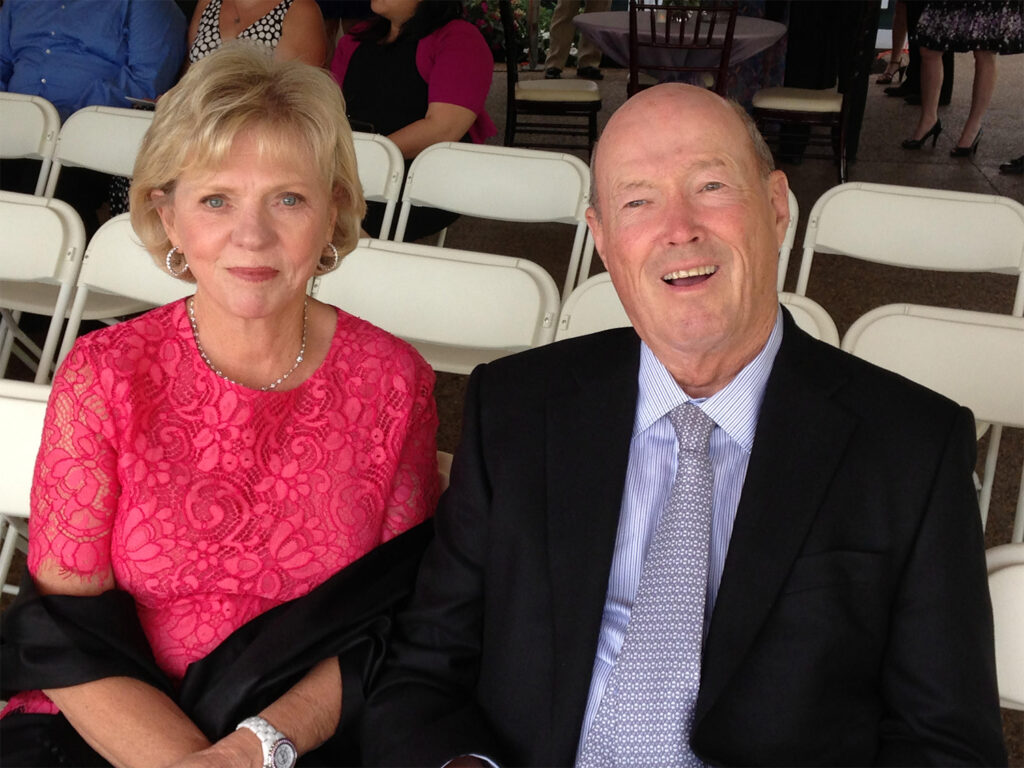 Maurizio Fava, MD, is psychiatrist-in-chief at Mass General, directing a department of more than 600 clinicians, researchers and trainees. A world leader in the field of depression, he is director of the Division of Clinical Research of the Mass General Research Institute, founder and executive director of the Clinical Trials Network and Institute and associate dean for clinical and translational research at Harvard Medical School.
Maurizio Fava, MD, is psychiatrist-in-chief at Mass General, directing a department of more than 600 clinicians, researchers and trainees. A world leader in the field of depression, he is director of the Division of Clinical Research of the Mass General Research Institute, founder and executive director of the Clinical Trials Network and Institute and associate dean for clinical and translational research at Harvard Medical School.
A very Happy New Year to all of you. We made it through one of the most difficult years that, collectively, we have ever experienced. Challenging times are ahead in 2021, but so, too, are better days.
We have not been able to celebrate in the usual ways with our family and friends this holiday season. But we have not lost our ability to connect with those we care about — and staying connected is essential. Earlier this year, the psychiatry department’s team of researchers named social connection as the strongest protective factor for depression. Keep your physical distance, not your social distance. Take this time to connect with people in any way you can. And I have found that holiday traditions serve as links to our past and to the people who remain in our hearts. Thinking about those who came before us can help us understand what it was like for them to live through hard times, with no end in sight.
Looking ahead to 2021, I am optimistic there is an end in sight. That two vaccines are available this soon is one of the most incredible achievements of medical science in our lifetimes. We celebrate this miracle, as we grieve our losses. We also celebrate technology, which made it possible to provide virtual care for patients this year. In the new year, telemedicine and new technologies will expand access to mental health treatment and lessen the inequities and disparities in health care that the pandemic has revealed. Now and in the future, it will be important to remember that we are not only connected to each other, we are also bound to each other. But first, breathe a big sigh of relief that 2020 is over.
 Ellen B. Braaten, PhD, is a child psychologist and executive director of the Learning and Emotional Assessment Program (LEAP).
Ellen B. Braaten, PhD, is a child psychologist and executive director of the Learning and Emotional Assessment Program (LEAP).
I’ve lived in a lot of locations in my life and the adage that has helped me through good times and bad is: Bloom where you are planted. I would have never imagined that we would have had a year (and possibly more!) of needing to “bloom” in our homes with kids schooling and partners working. Still others are attempting to bloom alone, without family and friends. It hasn’t been easy. Yet, here we are, and if we are not quite flowering, we are surviving. This is something to celebrate.
When I look at the New Year and towards the hopefulness of 2021, I take pride in the accomplishments of the faculty and staff of the Psychiatry Department and LEAP. We’ve managed to bloom through Zoom and have assessed and treated thousands of children and adults. We’ve found that in the worst of circumstances, we can grow, change, and adapt. We all have. Even if we think we haven’t. Even if we are miserable. Even if we didn’t want to keep going. We have. We’ve done our best. We are here. That’s our proof. My New Year’s goal is to remember to bloom wherever this year leads. 2020 taught me that even in the toughest of times, this is possible.
 Justin A. Chen, MD, MPH, is executive director and co-founder of the MGH Center for Cross-Cultural Student Emotional Wellness and specialist in the treatment of mood and anxiety disorders in young adults. He is medical director of ambulatory psychiatry and co-director of primary care psychiatry.
Justin A. Chen, MD, MPH, is executive director and co-founder of the MGH Center for Cross-Cultural Student Emotional Wellness and specialist in the treatment of mood and anxiety disorders in young adults. He is medical director of ambulatory psychiatry and co-director of primary care psychiatry.
Back in the early weeks of the pandemic, an odd thought crossed my mind that COVID-19 was precipitating a sort of “radical mindfulness” globally. Even though many of us were busier than ever adapting to new challenges, we were also forced to stop and take stock of our lives, beliefs and assumptions. My advice is to hold onto that mindful reflection and not simply revert to “business as usual.”
The pandemic has exposed and exacerbated fundamental problems in our approach to public health, jobs, the environment, and even social connectedness and mutual obligation, with deadly consequences. It has also revealed what can be accomplished through teamwork and purpose, including the production of vaccines in record time and expansion of desperately needed access to mental health care through tele-psychiatry.
On a personal level, it reminded me of what is truly important, and challenged me to reflect on how well aligned my day-to-day decisions were with my priorities. In all these ways and more, the pandemic may present us with the possibility of new ways forward and a fresh perspective on New Year’s resolutions.
 Lee S. Cohen, MD, is director of the Ammon-Pinizzotto Center for Women’s Mental Health and the Perinatal and Reproductive Psychiatry Clinical Research Program and associate chief of psychiatry for philanthropy and department communications.
Lee S. Cohen, MD, is director of the Ammon-Pinizzotto Center for Women’s Mental Health and the Perinatal and Reproductive Psychiatry Clinical Research Program and associate chief of psychiatry for philanthropy and department communications.
As a sailor, 2020 drove home the lesson that even when equipped with good charts and a clearly laid out course, fate can place your sails in the water; life is so fragile. But I have been inspired and am in awe of the creativity of friends, family and colleagues who find inner strength to navigate challenge while giving to others.
It has always felt like a privilege to me and the faculty of our Center to work with pregnant and postpartum patients as we collaboratively manage psychiatric disorder during such a critical time as planning a family or a pregnancy or the newborn period. While at various times, the pandemic has turned the experience of pregnancy and the postpartum period on its side, I have also witnessed the resilience of moms and couples and families who have managed to ride a wave of uncertainty as they celebrate the milestone of this major life transition frequently when other aspects of life are tenuous. I marvel at their strength.
It has been so important to find bits of time to recharge during 2020. In between Zoom calls that have been the bookends of too many days of 2020, I am grateful for the moments when I paused to recharge: a walk on the beach, a bike ride before the sun went down, checking in on an old friend and teacher who was hunkered down in a cabin.
We look forward with hope to 2021.
 John Herman, MD, is associate chief of psychiatry and co-founder and medical director of the Mass General Employee Assistance Program.
John Herman, MD, is associate chief of psychiatry and co-founder and medical director of the Mass General Employee Assistance Program.
Hark! I am already giddy in anticipation for the time when thoughts of COVID-19 have begun to recede. Vaccinated and surrounded by family and friends, I fully expect the return of easy and joyful celebration, relief and overflowing gratitude…
So, here’s to celebrating next year.
This year? Hunker down.
 Mary Lyons Hunter, PsyD, is the unit chief, Behavioral Health, MGH Chelsea HealthCare Center.
Mary Lyons Hunter, PsyD, is the unit chief, Behavioral Health, MGH Chelsea HealthCare Center.
2020 was meant to be a year of promise. Instead, COVID-19 was set upon us and ravaged my community of Chelsea, as well as many others across the nation. It laid bare the fragility of our safety net systems and the digital divide in our most vulnerable populations. Despite the many struggles and having to bear witness to the pain and hardships of others, I have been able to take away a few positive lessons.
The first is Radical Acceptance — the perspective of accepting our circumstances and recognizing where we can affect change and where we can’t. This tool has been helpful for me in managing daily challenges. The second is Gratitude — I am grateful for my Mass General colleagues and their commitment to care for all patients, grateful that I can be in a place to help others during these tough months. Gratitude allows us to acknowledge the goodness which surrounds us in our lives, giving us a ray of light amidst these dark times. For me, the new year brings hope and excitement, with a new administration and the arrival of a vaccine helping us to get back to normal. So, collectively, we can work toward a better future.
 Luana Marques, PhD, is a clinical psychologist, a Phyllis and Jerome Lyle Rappaport MGH Research Scholar 2020-2025, and director of Community Psychiatry PRIDE. She is president of the Anxiety and Depression Association of America.
Luana Marques, PhD, is a clinical psychologist, a Phyllis and Jerome Lyle Rappaport MGH Research Scholar 2020-2025, and director of Community Psychiatry PRIDE. She is president of the Anxiety and Depression Association of America.
At the beginning of last year, we sprinted to respond to the emerging COVID-19 pandemic. We switched to remote work and joined together to support our communities with the greatest need. As we have moved from a sprint to a marathon, it’s important we continue to find ways to build resilience. Schedule time to add movement into your daily routine, connect with friends, and volunteer to help others. Doing something, even when we feel like doing nothing, can help us build resilience as we enter the new year. If you’re interested in learning more strategies for building brain health, I invite you to explore our online course.
 Olivia I. Okereke, MD, MS, is a geriatric psychiatrist, director of geriatric psychiatry and a research leader in the field of epidemiology and prevention of depression and cognitive decline in older people.
Olivia I. Okereke, MD, MS, is a geriatric psychiatrist, director of geriatric psychiatry and a research leader in the field of epidemiology and prevention of depression and cognitive decline in older people.
Gratitude. The approach of 2021 is a time to be grateful. In a year in which many older people have faced terrible dangers and loss during a once-in-a-century pandemic, the opportunity to ring in another year is very welcome. At the New Year, think about taking a moment of reflection and gratitude.
Self-care and health care. Taking care of your self — whether it is getting in some light exercise or stretching, spending time in quiet relaxation, or safely meeting or talking with family and friends — is central to maintaining good health. Right alongside that is keeping up with health visits and screenings. Try not to let your regular check-ups fall off the radar.
Staying connected. The challenge of social disconnection has confronted many older adults in the last year. Ironically, some of the very tools needed to keep up social ties, such as video meetings, have felt inaccessible to many older people. So, ask for help as often as you need — from family, friends, health providers, senior services workers or others — with the technology or resources you need to get and stay connected to others.
 Vinod Rao, MD, is medical director of the West End Clinic, an outpatient facility for those with substance use disorders and co-occurring mental health disorders.
Vinod Rao, MD, is medical director of the West End Clinic, an outpatient facility for those with substance use disorders and co-occurring mental health disorders.
With COVID-19 derailing New Year’s gatherings this year, we can always fall back on the tradition of new year’s resolutions, right? Well, I personally have never been able to get behind new year resolutions. We hope we can make for a happier new year through familiar resolutions — to eat better, to hit the gym, or to spend more time with family. But if we have learned anything from 2020, the world can throw us curveballs.
The change in the year is the perfect moment to reflect on who we are and what we stand for in all domains in our life — as a partner, as a parent, as a child, as a worker, as a friend, as a spiritual aspirant, as a citizen, as a member of our ecosystem. Instead of choosing actions, we can deepen our understanding of what values we want to live by. Values are our deepest wishes about how we want to behave and who we want to be. So, let’s take a few moments and clarify our values and what we stand for. And let this be a small but important step toward a happy 2021 and beyond.
 Paula K. Rauch, MD, is founding director of the Marjorie E. Korff Parenting At a Challenging Time (PACT) program and a child psychiatrist specializing in the effects of medical illness on families.
Paula K. Rauch, MD, is founding director of the Marjorie E. Korff Parenting At a Challenging Time (PACT) program and a child psychiatrist specializing in the effects of medical illness on families.
2020, for me, is the year of grief and gratitude. Many among us have endured the painful grief of the death of a family member this year, whether due to COVID-19 or other causes. Each of us has experienced the smaller, ambiguous losses, too. We need to give ourselves permission to be sad about the missed family times, graduations, weddings, reunions, work events, crowded casual get-togethers and travel.
I am grateful to the colleagues who remind me that it is important to acknowledge and grieve these losses with the hope of enjoying them even more in the future. I am grateful for the many lessons learned this year from my patients and their families, who pre-COVID were already living meaningfully while adapting to the challenges of serious medical illness and I am grateful for the technology that makes our visits possible. In the New Year, I will continue to make the safest choices I can for my health and the health of those around me — I am grateful to each of you for the choices you will make that will benefit all of us. When I am able, I will get vaccinated. I hope you will, too.
 Eve M. Valera, PhD, is a clinical neuroscientist whose current passion and work focuses on understanding and raising awareness about the effects of brain injuries sustained from intimate partner violence.
Eve M. Valera, PhD, is a clinical neuroscientist whose current passion and work focuses on understanding and raising awareness about the effects of brain injuries sustained from intimate partner violence.
As this complicated year closes, my resolutions and suggestions for the New Year are simple: Check in, check out, let go and enjoy.
Check in with family and friends. Forced time together can increase the degree of interpersonal tension or even violence within households. Reaching out to friends and family just to see how everyone is doing can be helpful. Or maybe if need be, ask for help if you think your own household tension is growing.
Check out of serious thinking for at least a minute or two each day. Just stare into space or close your eyes and listen to your heartbeat, birds chirping, a ticking clock, a favorite song, or nothing. Disconnect for just a moment to allow your body to just “be.”
Let go. This past year provided too many opportunities for hatred, anger, resistance, disagreements, and anguish. Holding onto these things gives them more power. Letting go gives you the power — just do it!
Enjoy something every day. A ray of sunshine, a snowflake, a baby’s giggle, soft fur to pet, a beautiful sunset, a bird’s song, or a kind word from a loved one or a stranger. Learn to appreciate these simple joys in life and we will feel much richer than we ever thought we could be.
 Robert J. Waldinger, MD, is a psychiatrist, psychoanalyst and Zen priest who directs the Harvard Study of Adult Development, one of the longest-running studies of adult life.
Robert J. Waldinger, MD, is a psychiatrist, psychoanalyst and Zen priest who directs the Harvard Study of Adult Development, one of the longest-running studies of adult life.
This is a new year like none we could have imagined! It’s a reminder that life brings surprises and challenges that we can’t always anticipate. That’s just how it is. My aspirations for 2021 include:
Be more flexible. So much of life is out of my control and relaxing my grip on things I don’t need to control can be such a relief.
Be kinder. Make that my default response. It’s so easy in the forced isolation of this pandemic to ‘fill in the blanks’ about people and events. When situations aren’t clear (which is often), I aspire to give people the benefit of the doubt.
When in doubt, reach out. When I wonder whether to call or text or email someone, my goal is to act on that impulse more often. People are feeling disconnected — including me — and when I reach out, I almost never regret it.





